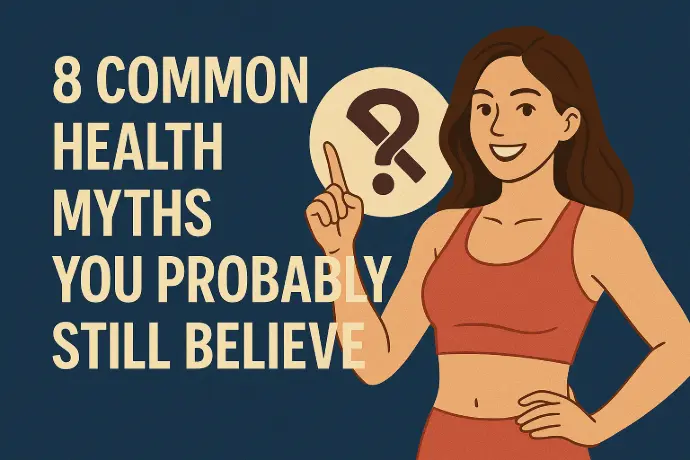
We all want to stay healthy and make the right choices for our bodies. But sometimes, we hear things that sound true yet they’re actually wrong. These are called health myths. They spread through social media, friends, or old advice from years ago.
In this blog, we’ll explain 8 common health myths that many people still believe and what the truth really is.
1. “You need to drink 8 glasses of water a day."

This is one of the most common health tips. But the truth is: there’s no one-size-fits-all number.
What’s true:
● How much water you need depends on your body, activity level, and even the weather.
● Some of your water comes from food (like fruits and soup).
● A good rule: drink when you’re thirsty, and make sure your pee is light yellow.
2. “Carbs are bad for you.”

Many people think carbohydrates (carbs) cause weight gain. That’s why they cut out bread, rice, or pasta completely. But carbs are not the enemy.
What’s true:
● Carbs are your body’s main source of energy.
● Whole carbs like brown rice, oats, and fruits are healthy.
● It's the processed carbs (like cookies, cakes, and white bread) that can cause problems when eaten too much.
3. “If you’re thin, you must be healthy.”
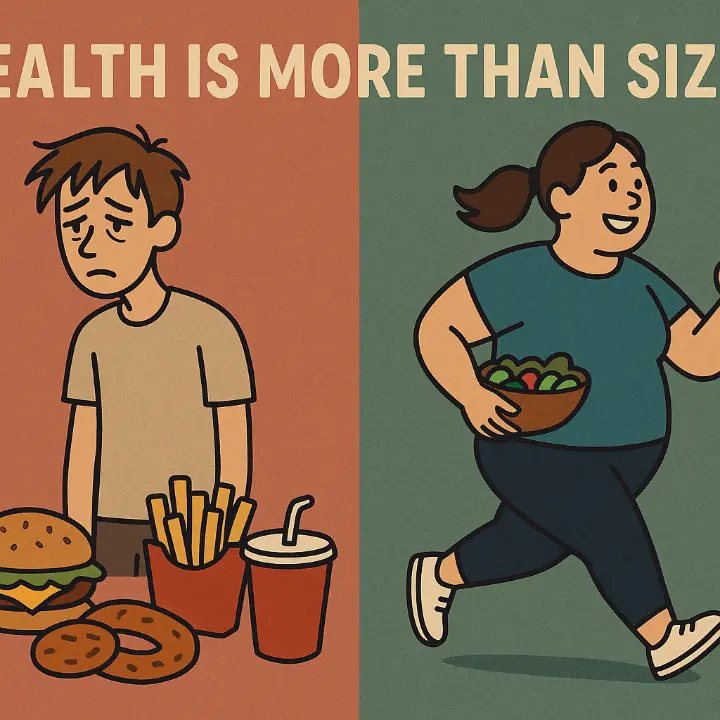
Being thin doesn’t always mean someone is healthy. And being heavier doesn’t always mean someone is unhealthy.
What’s true:
● Health depends on many things: diet, sleep, activity level, stress, and more.
● Thin people can have high cholesterol, diabetes, or heart problems.
● It's better to focus on healthy habits, not just body size.
4. “You can catch a cold from being cold.”
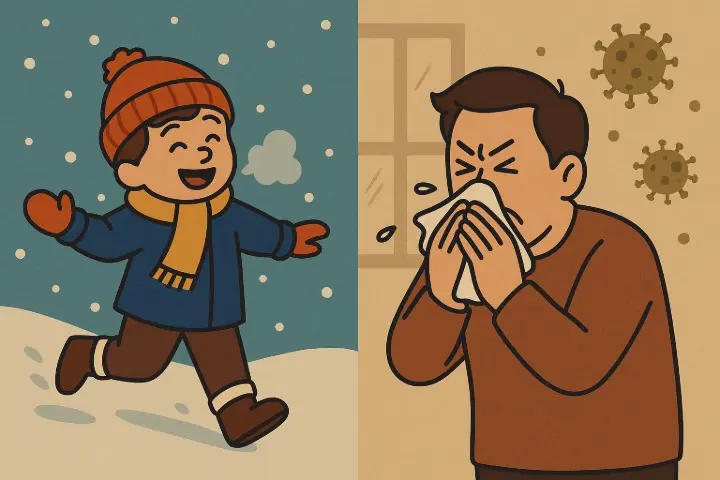
Many parents used to say, “Put on a jacket or you’ll catch a cold!” But being cold doesn’t actually make you sick.
What’s true:
● Colds are caused by viruses, not the temperature.
● You get sick when you touch or breathe in germs from someone else.
● Cold weather may help viruses spread, but the cold itself doesn’t cause illness.
5. “Cracking your knuckles causes arthritis.”
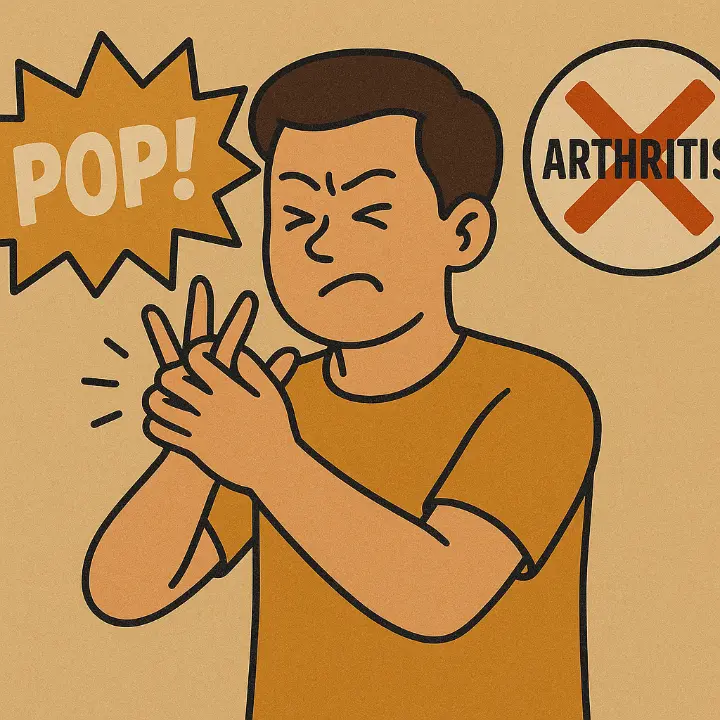
This is something many people have heard since they were kids. It sounds scary—but it's not true.
What’s true:
● Cracking your knuckles is just gas bubbles popping in your joints.
● It does not cause arthritis.
● It may bother people around you, but it’s not harmful to your bones.
6. “Natural means safe.”

These days, many products say they’re “natural” or “herbal.” But just because something is natural doesn’t always mean it’s good for you.
What’s true:
● Some natural things (like poison ivy or snake venom) are dangerous.
● Some herbal products can interact with your medicines or cause side effects.
● Always talk to a doctor before trying new supplements even if they’re labeled as “natural.”
7. “Detox diets clean your body.”
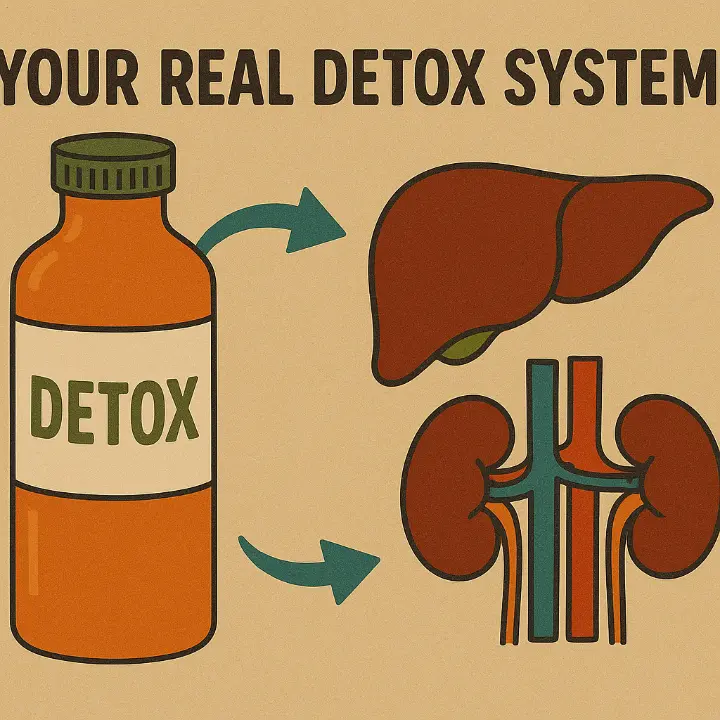
You may have seen ads for juice cleanses or detox teas that promise to clean out your body. But your body already has a powerful detox system—your liver and kidneys.
What’s true:
● Detox drinks are often just marketing.
● Extreme diets or fasts can harm your health, not help it.
● To support your body’s natural detox, drink water, eat healthy, sleep well, and avoid alcohol and junk food.
8. “You can sweat out a fever or illness.”
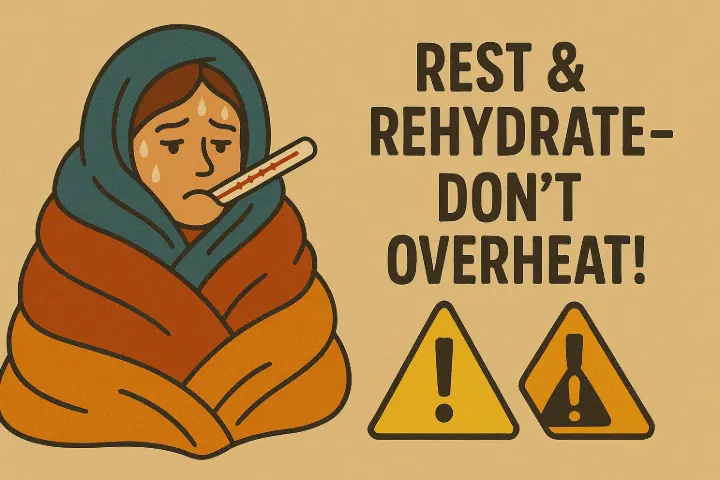
Some people think sitting in a sauna or wrapping up in blankets to sweat helps you “sweat out” a cold or fever. This is not only untrue—it can be dangerous.
What’s true:
● A fever is your body’s way of fighting an infection.
● Sweating too much can cause dehydration.
● Rest, fluids, and proper care are better ways to help your body heal.
Final Thoughts
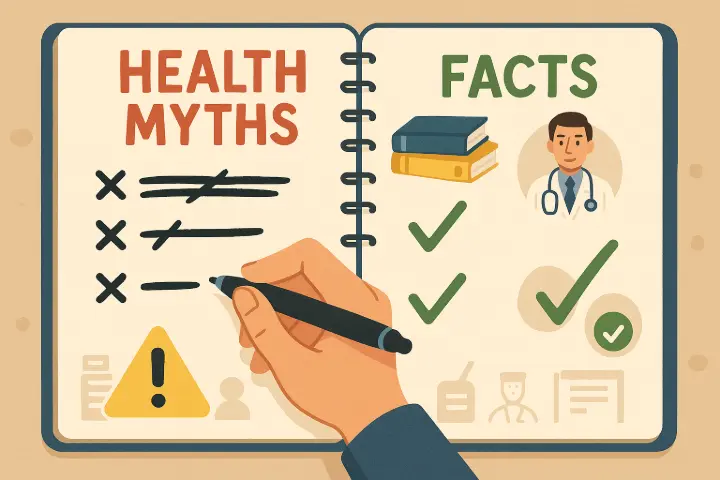
It’s easy to believe health tips when we’ve heard them many times. But not everything we hear is correct. Believing in health myths can lead to poor choices or even harm.
Here’s how you can stay smart about your health:
● Ask your doctor if you’re unsure.
● Look for trusted sources, like health organizations or medical websites.
● Be open to learning—science changes and so does good health advice.
● Remember, it’s okay to change your habits when you learn something new. Don’t believe everything you hear. Use facts, not fads, to stay healthy!
The more you know, the healthier you can be.
Thank You...